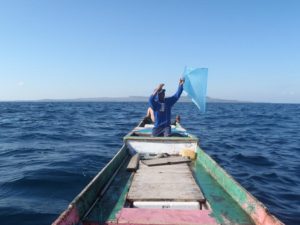Gourmet Fusion Foods is committed to responsible sourcing and requires the strictest adherence to food safety standards from its supply partners.
Our Quality Assurance teams provide on-site inspections services and quality control testing to ensure compliance with customer specifications and regulatory requirements.
Our line-up of production facilities overseas are compliant with the following food safety management schemes as recognized by GFSI and achieved through succesfull 3rd party audit
Global Aquaculture BAP standards
Farmed Fish & Crustaceans, the BAP program outlines standards for each type of aquacultural facility. It currently certifies shrimp farms and hatcheries, salmon, tilapia, channel catfish and pangasius (swai) farms, seafood processing plants and feed mills.
BRC Global Standards
BRC Global Standards is the world’s biggest provider of safety and quality standards for food manufacture, packaging, storage and distribution. Its standards are generated with the help of technical specialists, retailers, manufacturers and certification bodies from around the world.

Overview of the pillars of a Secure and Sustainable Supply Chain for Farmed Aquaculture Seafood
In today’s environment the global seafood supply chain has a lot more risks and critical control points to cover than only specifications and wholesomeness of product.
The responsible supply chain encompasses not only the production factory, but also the farms, hatcheries, feed, feed ingredients and packaging material supply.
The Four Pillars for a secure & compliant international supply chain are as follows:
Food Safety
Sustainability
Social Compliance
Regulatory Compliance
Fishery Improvement Project launched to protect tuna stocks in Banda Sea off the coast of Sulawesi
Los Angeles
October 21, 2016
Gourmet Fusion Foods (GFF) is delighted to announce that they have partnered with Dharma Samudera Fishing Industries (DSFI) to launch a Fisheries Improvement Project (FIP) to promote sustainability for yellowfin tuna and other neritic tuna species in the Banda Sea off the coast of Sulawesi. The main impetus for this FIP was the Indian Ocean Tuna Commission’s (IOTC) recommendation to reduce catches of yellowfin tuna by 20%, requiring immediate action to increase stock levels.
The recent status of the Banda Sea fishing region:
• Breeding Ground for Yellowfin and other tuna species
• Overfishing due to the arrival of commercial fishing vessels has affected the livelihoods of the traditional people.
• High prevalence of foreign and illegal fishing vessels
• The Indonesian Government's recent crack-down on illegal fishing has served to provide a platform for a resurgence in local fishermen to restart their traditional practices.
For the fisherman involved in this partnership, the goal is to ensure the long-term future of the tuna fishing industry in the Banda Sea thus guaranteeing them the possibility of long-term economic benefits and opportunities gained through international market access. This will foster the increase of traditional methods of artisanal fishing in the region, including kite fishing and hand-lining. Another goal is to ensure the development of a Banda Sea fisheries management plan, to be administered by DFSI.
This partnership will not only promote sustainability, it will enforce transparency and traceability to ensure that the origin of the tuna and its population status is closely monitored and self regulated. The initiative should improve the accuracy and availability of catch data as well.
An important element of this FIP launch has been the advice and information received from Sustainable Fisheries Partnership (SFP). SFP is an NGO, shaping corporate responsibility, which works closely with companies providing information on various fisheries and education to develop programs that work to advance sustainability.
GFF sources a majority of its tuna from the western part of the Indian Ocean. As working with fisheries that promote sustainability is paramount, GFF strives to increase the volume of certified and sustainable products across its sourcing supply chain.
